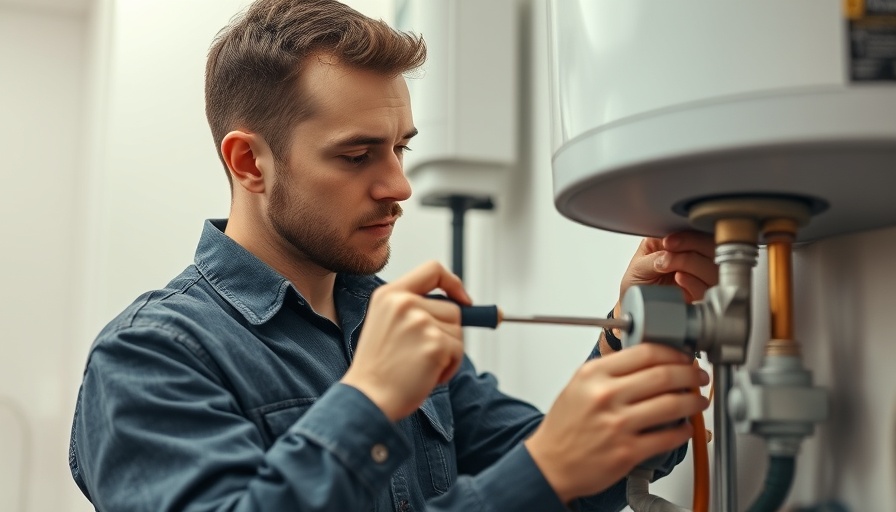
Why Your Water Heater Matters for Your Health
Your water heater is often overlooked when discussing health and home maintenance. However, the quality of the water heated in your home directly contributes to your well-being. Contaminants can accumulate in aging or poorly maintained units, leading to potential health risks. In a mobile home, where space can be limited and appliances are often compactly installed, ensuring your water heater is working efficiently is crucial. This article will explore essential maintenance tips that can enhance not just the longevity of your water heater but also the health of your household.
Conduct Regular Inspections for a Safer Home
A proactive approach to maintaining your water heater starts with routine inspections. You don’t need to be a plumbing expert to spot trouble. Check for signs of leakage, corrosion around connections, or rust on the tank. Such small issues, if not addressed, can escalate into significant problems, leading to expensive repairs or, worse, health hazards.
Testing the Vital Pressure Relief Valve
The pressure relief valve is a feature that must not be ignored. This small yet crucial component releases excess pressure, preventing a potential explosion. Regular testing—just by lifting the test lever—can ease your worries. If you don’t hear any rush of water or air, you may need to replace the valve immediately to avoid dangerous circumstances.
The Importance of Flushing Your Water Heater
Flushing your water heater is another essential maintenance step. Over time, sediment, including minerals like calcium and magnesium, can accumulate at the bottom of the tank. This sediment not only reduces heating efficiency but also can foster bacteria growth, jeopardizing the quality of your hot water. Aim to flush your tank at least twice a year; it’s a simple process that ensures your water remains clean and tasty. By maintaining a clear flow, you'll benefit from energy savings and improve your overall water experience.
Implementing Water Filters: A Smart Move
Mobile homes often face unique challenges regarding water quality. The installation of a whole-house or inline water filter is an effective solution to combat sediment and rust. By catching impurities before they enter your water heater, these filters boost the lifespan of your appliances and maintain the quality of your drinking and bathing water. Knowing your water is clean provides peace of mind for you and your loved ones.
Safe Temperature Settings for Healthier Water
A key safety measure involves adjusting the thermostat on your water heater. Keeping it around 120 degrees Fahrenheit is ideal; this not only minimizes the risk of scalding accidents but also reduces energy consumption. Furthermore, lower temperatures help limit bacterial growth within the tank—making your hot water safer to use.
The Ripple Effect of Water Heater Care
Consistent care for your water heater may not seem glamorous, but the rewards are substantial. By integrating these maintenance tips, you not only prolong the life of your appliance but ensure your family enjoys safer, cleaner water. A well-maintained water heater enhances peace of mind, leading to significant savings in the long run and boosting your family's health, too.
Understanding the Risks: Why Maintenance Matters
The failure to maintain your water heater can lead to serious health risks. Contaminated water can cause various illnesses, while leaks can create unsafe living environments. The financial burden of emergency repairs often exceeds the cost of routine maintenance. A regular inspection schedule can safeguard against both health risks and costly future repairs.
Embracing a Healthier Lifestyle
By acting now to care for your water heater, you’re taking proactive steps toward enhancing your family’s overall health. Health improvements in one area often lead to awareness and improvements in others. Let this be your motivation to maintain a cleaner, healthier home environment.
Call to Action: Make It a Routine
Consider scheduling your next water heater inspection. Engage the whole family in the maintenance routine, allowing everyone to contribute to a healthier living environment. Not only will this enhance your water quality, but it will also foster a culture of care within your household. Start today and encourage a healthier lifestyle!
 Add Row
Add Row  Add Element
Add Element 



 Add Row
Add Row  Add
Add 


Write A Comment